Data Global
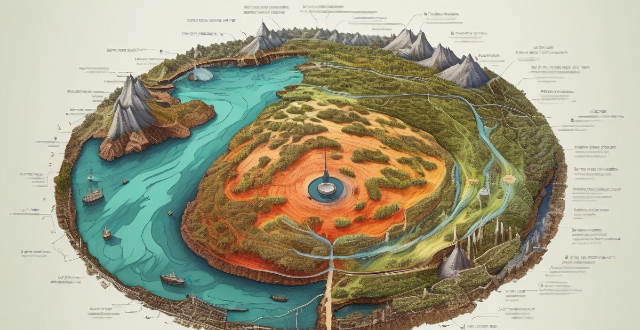
How do climate data analysis contribute to understanding global warming ?
Climate data analysis is essential for understanding global warming, its causes, effects, and potential solutions. Scientists collect temperature records, carbon dioxide concentrations, and sea level data to identify trends, establish correlations, and create predictive models. These efforts help develop effective strategies to mitigate the impacts of global warming.

What is the General Data Protection Regulation (GDPR) ?
The General Data Protection Regulation (GDPR) is a comprehensive data privacy law that governs how personal information is collected, processed, and stored by organizations within the European Union (EU). It was designed to protect the rights of individuals and ensure their personal data is handled securely and transparently. Key features of GDPR include data minimization, consent, transparency, data portability, right to erasure, data protection officers (DPOs), and penalties for non-compliance. Benefits of GDPR compliance include enhanced trust between organizations and customers, risk mitigation through strong data protection measures, competitive advantage in the EU market, and increasing global relevance as other countries adopt similar laws. Challenges of GDPR compliance include complexity, cost, cultural differences leading to confusion and potential non-compliance, and technological limitations. In conclusion, the General Data Protection Regulation (GDPR) is a crucial piece of legislation that aims to protect the privacy rights of individuals within the European Union. While it presents both benefits and challenges for organizations, compliance with GDPR has become an essential aspect of modern business operations in today's digital age.

What is data privacy ?
Data privacy is the protection of personal information from unauthorized use. It's important for individual rights, building trust, legal compliance, and risk mitigation. Principles include data minimization, anonymization, encryption, transparency, consent, access control, retention, integrity, and accountability. Best practices involve regular audits, employee training, updating policies, secure systems, and response plans for data breaches.
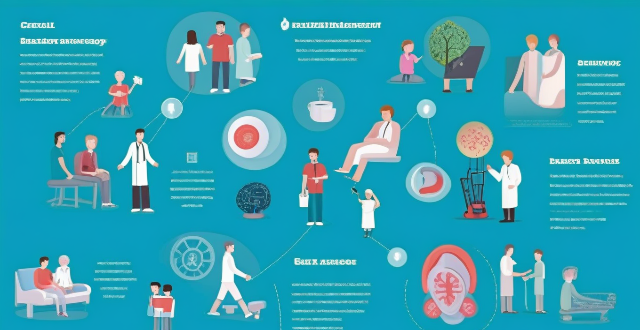
What is the role of technology in improving global health outcomes ?
Technology plays a crucial role in improving global health outcomes through advanced medical equipment, digital health solutions, and more. It has revolutionized diagnosis, treatment, disease surveillance, prevention, accessibility, affordability of healthcare services, research and development initiatives, and health literacy and education. Technology's impact on global health will continue to grow positively as it evolves at a rapid pace.

How do climate skeptics refute the evidence of global warming ?
The text discusses the arguments put forward by climate skeptics and examines their validity in light of current scientific knowledge. The main points covered include: - Misinterpretation of data: Climate skeptics often misinterpret or selectively choose data to support their claims, focusing on short-term fluctuations rather than long-term trends. However, when all available data is considered, it becomes clear that global temperatures have been rising steadily over the past century. - Natural variability: Climate skeptics argue that natural factors such as changes in solar radiation or volcanic activity can explain the observed warming trend without human intervention. However, these factors cannot account for the rapid increase in temperatures seen over the past few decades, and even when included in models, human activities remain the primary driver of global warming. - Alternative explanations: Some climate skeptics propose alternative explanations for the observed warming trend, such as changes in ocean currents or atmospheric circulation patterns. However, these theories lack empirical evidence and fail to explain many of the observed changes in our climate system. - Economic motives: Some climate skeptics may have economic motives for their views, such as fossil fuel companies and other industries that rely on carbon-intensive practices. By casting doubt on the scientific consensus around global warming, these groups hope to delay action on climate change and preserve their profits. Overall, the text concludes that while there may be legitimate debates around specific aspects of climate science, the overwhelming majority of scientists agree that human activities are contributing to global warming. Climate skeptics' arguments do not hold up under scrutiny, and it is crucial that we continue to invest in research and take action to mitigate the effects of climate change before it is too late.

How do communication satellites improve global connectivity ?
Communication satellites play a crucial role in enhancing global connectivity by providing reliable and high-speed internet access to remote areas, facilitating international communication, and supporting various applications such as telemedicine, e-learning, and disaster management. They cover vast geographic areas, including mountainous regions, deserts, and oceans, where traditional infrastructure is not feasible or cost-effective. Satellite internet services can be deployed quickly, often within days or weeks, compared to months or years required for terrestrial networks. They enable seamless communication across national borders, fostering global cooperation and collaboration. Newer generations of low Earth orbit (LEO) satellites reduce latency by orbiting closer to Earth, improving the speed and quality of international communication. Satellites facilitate telemedicine by providing real-time video conferencing between patients and healthcare professionals located far apart. They enable e-learning by connecting students in remote areas with educational resources and teachers around the world. During natural disasters or crises, satellites provide critical communication channels for emergency response teams and affected communities.

How does space exploration impact global cooperation and diplomacy ?
Space exploration has been a significant driver of global cooperation and diplomacy since the dawn of the space age. The pursuit of understanding our universe and the quest to explore beyond Earth's boundaries have fostered international collaboration, technological advancements, and diplomatic engagements that transcend traditional geopolitical tensions. In this discussion, we will delve into the various ways space exploration influences global cooperation and diplomacy.

What are the penalties for non-compliance with data protection regulations ?
Non-compliance with data protection regulations can result in significant penalties, including fines, legal action, and damage to a company's reputation. The specific penalties depend on the jurisdiction and the severity of the violation. Some common consequences include: - Fines and Financial Penalties: GDPR violations can result in fines up to €20 million or 4% of global annual turnover for less severe infringements, and up to €40 million or 8% of global annual turnover for more serious violations. CCPA violations can result in fines up to $2,500 per violation for each time a Californian resident's rights are violated, and up to $7,500 per violation if the violation involves selling or sharing personal information without consent. - Legal Action: Class action lawsuits initiated by individuals or groups may claim damages for non-compliance, with potential for large settlements depending on the number of affected parties and the severity of harm caused. Government investigations may involve possible subpoenas and audits to assess compliance levels and potential violations, as well as enforcement actions such as cease and desist orders or demands to implement corrective measures. - Reputational Damage: Loss of trust from customers when data breaches occur can erode customer faith in a company's ability to protect their information, and negative publicity from data misuse can permanently harm a company's brand image. Difficulty in partnerships and deals may arise, with other companies ending collaborations due to associated risks, and potential investors being wary of putting money into a company with known compliance issues. - Market Access Restrictions: In extreme cases, a company might be prohibited from handling certain types of data, and some regions might restrict entry to companies that have a history of non-compliance. - Corrective Measures and Costs: Technical and organizational changes may be required, such as upgrading systems to ensure compliance with technical standards like encryption and security protocols, and employee training to improve understanding of data protection laws and best practices. Legal fees for representation in legal proceedings or during investigations, and settlement payments to resolve class action lawsuits or government enforcement actions, may also be necessary. It is crucial for organizations to prioritize data protection compliance as part of their business strategy to avoid these adverse effects.
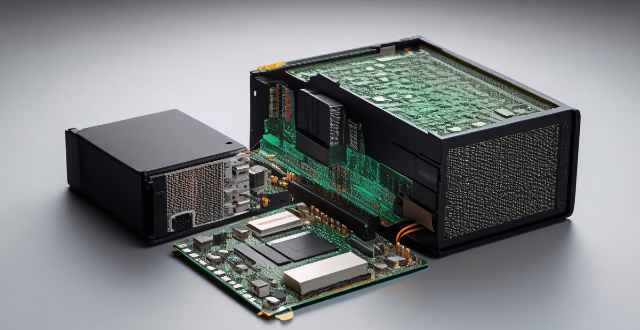
How does data encryption affect computer performance ?
Data encryption is crucial for securing data but can affect computer performance by increasing processor load, memory usage, disk I/O, network latency, and reducing battery life.
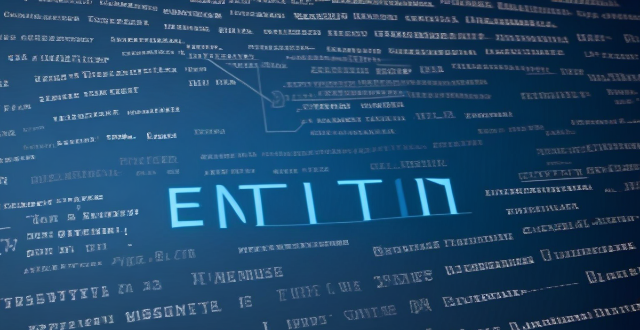
Why is data encryption important for online security ?
Data encryption is crucial for online security, protecting dataData encryption is crucial for online security, protecting data the financial impact of breaches It has evolved from ancient uses to a critical tool in today's digital landscape, with AI optimizing key management and enhancing algorithms.
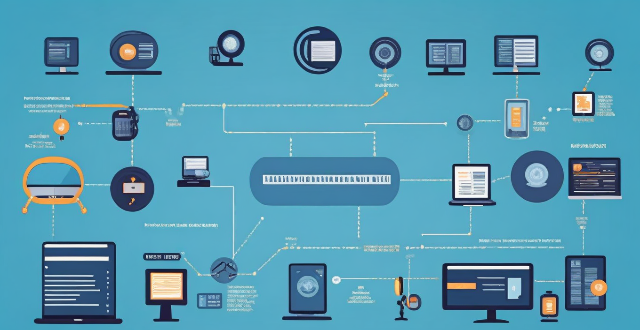
What are the benefits of having an unlimited data plan ?
An unlimited data plan offers benefits such as no data caps or overage charges, the ability to stream videos and music without worrying about data usage, using multiple devices simultaneously, working from anywhere, enjoying online gaming and social media, and better value for money.
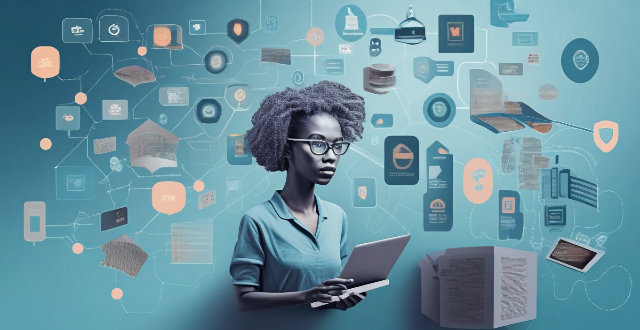
How do data protection regulations handle sensitive personal data ?
Handling sensitive personal data under data protection regulations requires strict adherence to principles such as consent, minimization, purpose limitation, and security. Regulations like the GDPR in the EU, CCPA in the US, and PIPEDA in Canada impose specific conditions for processing sensitive information. Organizations must adopt best practices including assessment, privacy impact assessments, employee training, access controls, and monitoring to ensure compliance and protect individuals' privacy rights.
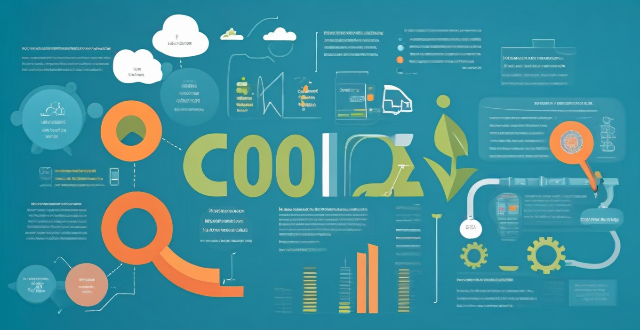
How can international cooperation on climate change contribute to global security ?
International cooperation on climate change is vital for global security. It helps mitigate environmental disasters, promotes economic stability and growth, enhances social cohesion and peace, facilitates technology and knowledge sharing, and strengthens global governance and diplomacy. Through joint efforts, nations can address one of the most pressing challenges of our time and secure a safer future for all.

What are the latest trends and advancements in climate data analysis technology ?
Latest Trends and Advancements in Climate Data Analysis Technology Climate data analysis has become increasingly important in recent years as scientists work to understand the impact of climate change on our planet. With advancements in technology, new methods for analyzing this data have emerged, leading to a better understanding of the complexities of the climate system. Here are some of the latest trends and advancements in climate data analysis technology: Artificial Intelligence and Machine Learning: One of the most significant developments in climate data analysis is the use of artificial intelligence (AI) and machine learning (ML). These technologies can process vast amounts of data quickly and accurately, allowing researchers to identify patterns and trends that would be difficult or impossible to detect manually. For example, AI and ML algorithms can analyze satellite images to track changes in ice coverage or monitor deforestation rates. Big Data Analytics: The volume of climate data available today is enormous, and big data analytics tools are essential for managing and interpreting this information. These tools can help researchers identify correlations between different variables, such as temperature changes and extreme weather events. They can also be used to create predictive models that forecast future climate conditions based on current trends. Cloud Computing and Remote Sensing: Cloud computing has made it possible for researchers to access and share large datasets from anywhere in the world. This has led to increased collaboration among scientists working on climate-related projects. Remote sensing technologies, such as drones and satellites, are also being used more frequently to collect climate data. These tools can provide real-time information about changes in the environment, allowing researchers to respond quickly to emerging issues. Blockchain Technology: Blockchain technology is another promising development in climate data analysis. By using a distributed ledger system, blockchain can ensure that climate data is secure, transparent, and immutable. This means that once data is recorded on the blockchain, it cannot be altered or deleted, ensuring its integrity over time. Additionally, blockchain can facilitate the sharing of climate data across organizations and countries without compromising security or privacy concerns. Citizen Science and Crowdsourcing: Citizen science and crowdsourcing initiatives have become increasingly popular ways to gather climate data. These programs involve members of the public in collecting and contributing data about their local environments. By harnessing the power of crowdsourcing, researchers can gather vast amounts of data from diverse locations around the world, providing valuable insights into global climate patterns and trends.

How has the COVID-19 pandemic impacted global health security ?
The COVID-19 pandemic has significantly impacted global health security by overwhelming healthcare systems, necessitating public health policies such as lockdowns and quarantine measures, and highlighting the importance of international cooperation. The strain on healthcare systems included increased patient loads, shortages of medical supplies, and stress on the healthcare workforce. Public health responses involved vaccination programs, testing and tracing initiatives, and economic challenges due to lockdowns. International cooperation was essential for coordinating a global response, sharing information, and addressing misinformation. The pandemic also highlighted the need for resilient global health systems, sustained investment in public health infrastructure, collaborative research, and technological advancements. Overall, the COVID-19 crisis has prompted efforts to build stronger and more cooperative global health systems prepared for future emergencies.

How do communication satellites enable real-time data transmission and monitoring ?
Communication satellites play a crucial role in enabling real-time data transmission and monitoring by serving as relay stations in space that can receive signals from one location on Earth and transmit them to another location. This is achieved through a complex system of technology, infrastructure, and protocols. Satellites are positioned in orbits around the Earth, either in geostationary orbit (GEO) or lower Earth orbit (LEO). Geostationary satellites remain fixed over a specific point on the Earth's surface, while LEO satellites move relative to the Earth's surface. The process begins when a signal, such as a phone call, internet data, or video feed, is generated at a source location. The signal is then sent via a ground station, which has powerful transmitters and antennas, up to the communication satellite using radio waves. Once the satellite receives the signal, it amplifies and frequencies it to avoid interference with other signals. The amplified signal is then transmitted back down to Earth, where another ground station receives it. Finally, the received signal is distributed to its intended destination, such as a phone network, the internet, or a monitoring station. Real-time monitoring is facilitated by the speed at which data can travel via satellite. With modern technology, latency (the time delay in signal transmission) can be minimized, especially with LEO satellites due to their closer proximity to Earth. Satellites can also be networked to provide redundancy and increased bandwidth for large-scale monitoring systems. Key technologies and infrastructure include ground stations, satellite design, network protocols, and satellite constellations. However, there are challenges and considerations such as weather impact, geographical constraints, and regulatory issues. In summary, communication satellites enable real-time data transmission and monitoring by acting as high-altitude relay stations, utilizing advanced technologies and infrastructure to deliver signals across vast distances with minimal delay.
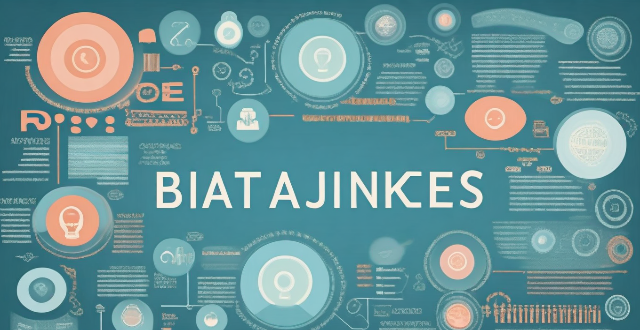
What is the difference between data privacy and data protection ?
The text discusses the difference between data privacy and data protection, emphasizing that understanding these concepts is crucial for managing personal information responsibly. Data privacy focuses on individual rights to control personal information, while data protection emphasizes organizational measures to safeguard that information. Both are essential for building trust and ensuring responsible data handling.

How can developing countries participate effectively in global climate cooperation ?
Developing countries can participate effectively in global climate cooperation by building capacity for climate action, promoting sustainable development pathways, engaging actively in international climate negotiations, and leveraging domestic resources and partnerships. This involves developing national climate policies and strategies, strengthening institutional capacity, integrating climate considerations into national development plans, fostering innovation and technology transfer, participating in global climate dialogue, seeking international support and financing, mobilizing domestic resources for climate action, and fostering cross-sectoral partnerships. By taking these steps, developing countries can contribute significantly to mitigating climate change and adapting to its impacts while promoting sustainable development and poverty reduction.

What are the latest trends in the global economy ?
The global economy is influenced by various interconnected factors including digital transformation, sustainability, global trade dynamics, monetary policies, and the rising influence of emerging markets. These trends are reshaping industries, fostering innovation, and influencing economic growth and policies worldwide.
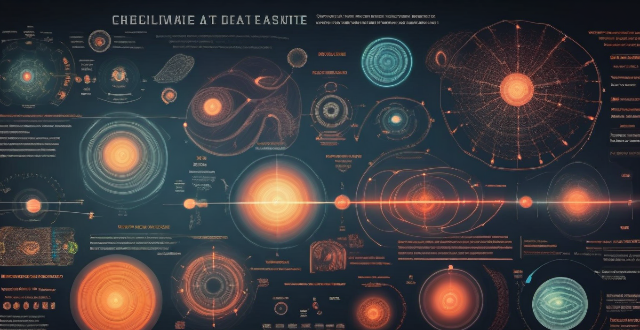
What are the most effective methods for analyzing climate data ?
Analyzing climate data is a complex task that requires a deep understanding of the subject matter and the use of advanced statistical techniques. Some of the most effective methods for analyzing climate data include time series analysis, regression analysis, spatial analysis, principal component analysis (PCA), and machine learning algorithms. These methods help researchers to identify patterns, trends, and cycles in climate data, determine relationships between variables, analyze data with a geographical component, reduce the dimensionality of large datasets, and identify patterns and trends not apparent through traditional statistical techniques. By using these methods, researchers can gain insights into our changing planet and predict future climate conditions based on current trends.

How do data protection regulations apply to cloud computing services ?
**Data Protection Regulations in Cloud Computing Services** Data protection regulations govern the collection, storage, processing, and transmission of personal information to protect individuals' privacy rights. These regulations apply to all organizations that process personal data, including those offering cloud computing services. Cloud service providers must ensure their services meet specific requirements under data protection regulations, such as data minimization, security, transparency, portability, and accountability. The application of these regulations to cloud computing services enhances security, improves trust, and increases transparency but also presents challenges like complexity, cost, and interoperability. As cloud computing services grow, understanding and complying with data protection regulations is crucial for both providers and users to protect personal data effectively.

How is global warming affecting polar ice caps and glaciers ?
Global warming is causing significant impacts on polar ice caps and glaciers, including the melting of Arctic sea ice, shrinkage of ice sheets in Greenland and Antarctica, retreat of mountain glaciers worldwide, rising sea levels, ecological changes, climate system feedback loops, and economic and social impacts. Mitigation and adaptation efforts are essential to address these challenges.

What role do data protection officers play under data protection laws ?
Data protection officers (DPOs) are crucial for ensuring compliance with data protection laws in organizations. They advise on compliance, develop policies, ensure adherence to regulations, educate stakeholders, and act as a point of contact for personal data requests.
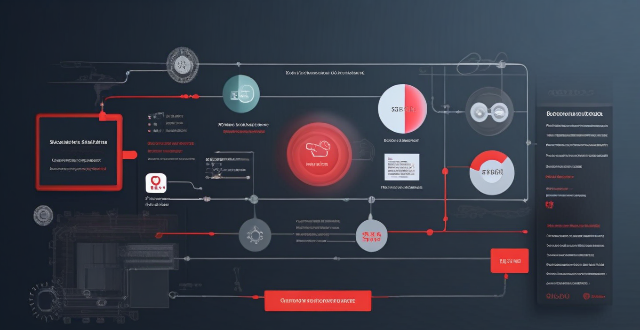
Can data encryption prevent data breaches and cyber attacks ?
Data encryption is a crucial security measure that can significantly reduce the risk of data breaches and cyber attacks by converting plain text into an unreadable format. However, it does not completely eliminate the risk of data breaches and cyber attacks. Encryption works through complex algorithms to scramble data so that it appears as random characters, requiring a secret key (or password) to decrypt the data back into its original form. There are two main types of encryption: symmetric and asymmetric. While encryption offers benefits such as confidentiality, integrity, authentication, and non-repudiation, it also has limitations including key management challenges, performance overhead, compatibility issues, human error, and advanced persistent threats (APTs). Therefore, organizations should implement other security measures such as firewalls, intrusion detection systems, regular security audits, and employee training programs to minimize the risk of cyber threats.
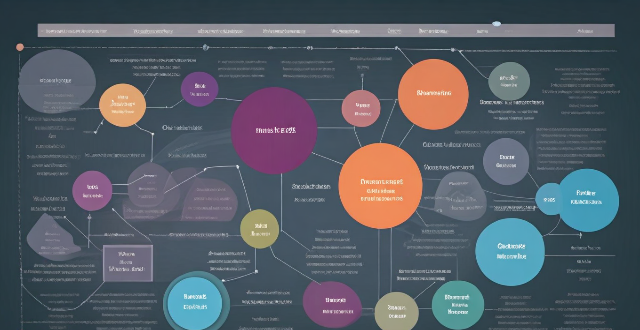
How do unlimited data plans differ from traditional data plans ?
Data plans are essential for internet usage, with unlimited and traditional data plans being the main types. Unlimited plans offer no data limits, predictable costs, and suit heavy users, while traditional plans have data limits, variable costs, and suit light users. The key differences include data limits, cost, and usage scenarios. Choosing the right plan depends on individual needs and usage patterns.

What is data encryption and how does it work ?
Data encryption is a crucial cybersecurity measure that transforms plaintext into ciphertext, protecting it from unauthorized access. It involves the use of complex algorithms and secret decryption keys. Encryption is significant for securing data at rest, in transit, and during processing, helping meet compliance requirements and reducing financial risks associated with data breaches. Its evolution includes historical precursors and wartime innovations, with AI expected to enhance its capabilities in the future.

What happens to my data during an iPhone repair ?
When you send your iPhone for repair, the repair center will take several steps to protect your data, including diagnostics, backup, data protection, testing, verification, and return of your device.

How has global warming impacted sea levels around the world ?
Global warming, primarily caused by greenhouse gas emissions from human activities, has significantly impacted sea levels. This includes melting glaciers and ice sheets, thermal expansion of ocean waters, coastal erosion, saltwater intrusion, increased flooding and storm surge risks, and displacement of coastal communities. Addressing these issues requires both mitigation efforts to reduce emissions and adaptation strategies to cope with the changes already underway.
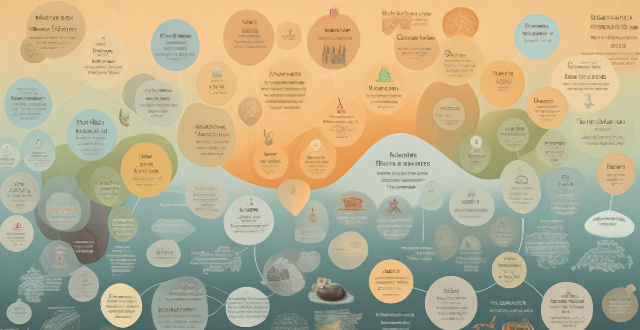
How does climate data analysis contribute to our understanding of extreme weather events ?
Climate data analysis is essential for understanding extreme weather events. It allows scientists to identify trends, make predictions, and assess the impacts of these events on people and ecosystems. Key aspects include long-term data collection, statistical analysis, modeling techniques, vulnerability assessments, and public education. This comprehensive approach helps us prepare for and mitigate the effects of extreme weather, ultimately enhancing our resilience and adaptability in a changing climate.
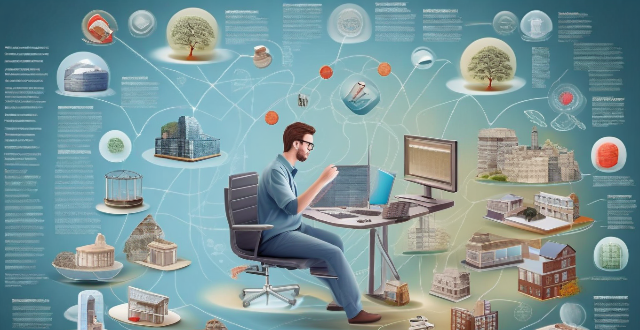
What are the rules regarding data breaches under data protection regulations ?
Data protection regulations have been established to ensure the confidentiality, integrity, and availability of personal data. These regulations set out specific rules regarding data breaches that must be followed by organizations that handle personal data. The key rules regarding data breaches under data protection regulations include notification of data breaches, mitigating their impact, record-keeping and reporting, penalties for non-compliance, and best practices for preventing data breaches. By adhering to these rules and implementing best practices, organizations can reduce the risk of data breaches and protect individuals' personal data.